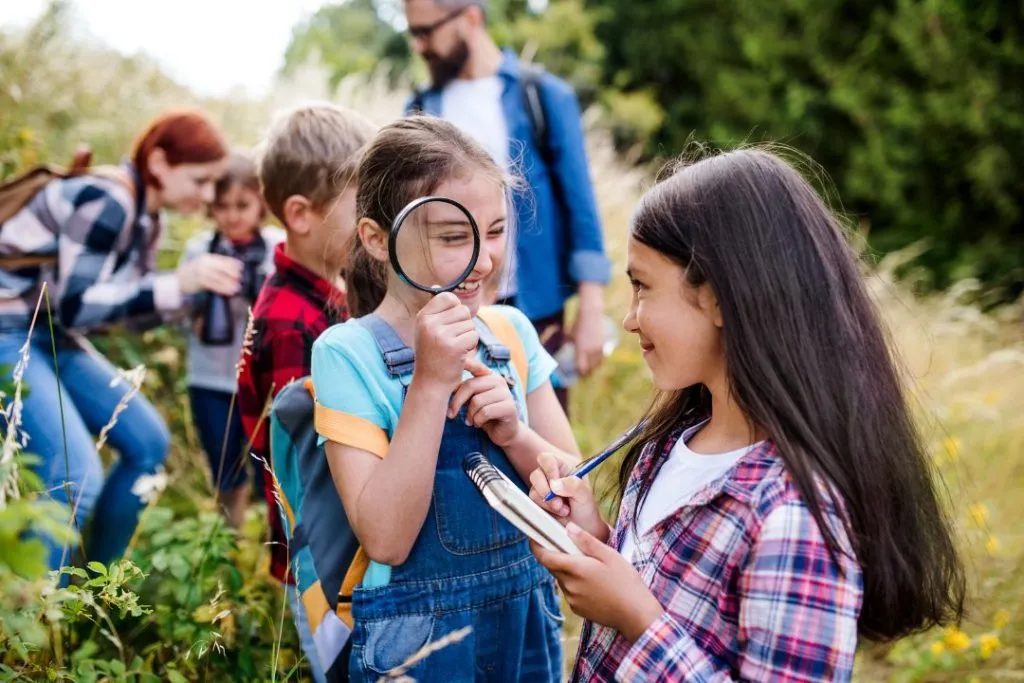Homeschool field trips offer a multitude of benefits that enhance the educational experience and overall development of homeschooled children. Here are some key advantages:
Real-World Learning: Field trips provide hands-on, real-world learning experiences that extend beyond textbooks and traditional classroom settings. Students can see, touch, and experience what they’re learning about, making the concepts come to life.
Engagement and Interest: Field trips can ignite excitement and enthusiasm for learning. Children often find the trip more engaging and interesting compared to regular classroom lessons, leading to better retention and understanding of the subject matter.
Multi-Sensory Learning: Field trips engage multiple senses, allowing students to learn through sight, sound, touch, smell, and even taste. This multisensory experience enhances the depth of understanding and memory retention.
Social Interaction and Networking: Field trips provide an opportunity for social interaction with peers and adults outside the immediate family. Children can network, share experiences, and develop interpersonal skills in a different setting.
Critical Thinking and Problem-Solving: Field trips often involve navigating new environments and situations, encouraging critical thinking and problem-solving skills. Students learn to adapt and make decisions based on the context of the trip.
Enhanced Memory Retention: Experiential learning through field trips can enhance memory retention as the experiences and emotions associated with the trip create lasting impressions that facilitate better recall of information.
Cultural and Historical Awareness: Visiting museums, historical sites, art galleries, or cultural events on field trips exposes children to various cultures, traditions, and historical events, broadening their understanding of the world.
Environmental Awareness and Appreciation: Field trips to natural reserves, botanical gardens, or wildlife sanctuaries foster a greater appreciation for the environment and a sense of responsibility towards its preservation.
Community Connection: Field trips within the local community allow children to connect with their surroundings, understand community roles and resources, and appreciate the contributions of different individuals and organizations.
Inspiration and Aspiration: Exposure to different careers, industries, or specialized fields during field trips can inspire children and help them explore potential future careers or areas of interest.
Parent-Child Bonding: Field trips provide an opportunity for quality bonding between parents and children. Sharing experiences, discussing what was learned, and enjoying the outing together strengthens the parent-child relationship.
Practical Application of Concepts: Field trips enable students to see how academic concepts are applied in real-life settings. This connection between theory and practice reinforces learning and enhances comprehension.
Broadening Horizons: Field trips expose children to diverse perspectives, cultures, and ways of life, promoting open-mindedness, tolerance, and a broader worldview.
Incorporating well-planned field trips into your homeschooling curriculum can enrich your child’s educational journey and contribute to a well-rounded, engaging learning experience.
Fun Field Trips
-
Field-Trip Fiasco (The Jitters Series)
-
Field Trip to the Moon (Field Trip Adventures)
-
Field Trip Mad Libs: World's Greatest Word Game
-
Field Trip to Volcano Island (Field Trip Adventures)
-
Amelia Bedelia's First Field Trip: A Hilarious Picture Book About Farm Mish...
-
Exploring Colorado with Kids: 71 Field Trips + 142 Nature-Inspired Activities
-
Field Trip to the Ocean Deep (Field Trip Adventures)
-
Zoo Field Trip Journal: A Fun & Educational Activity Book for Kids in Grades...
-
Franklin's Class Trip
-
Lost at the School Field Trip - The Hollow Creek Mystery: A Thrilling Teen Myste...











